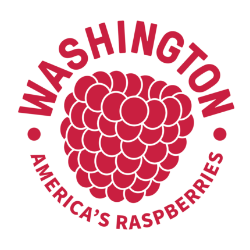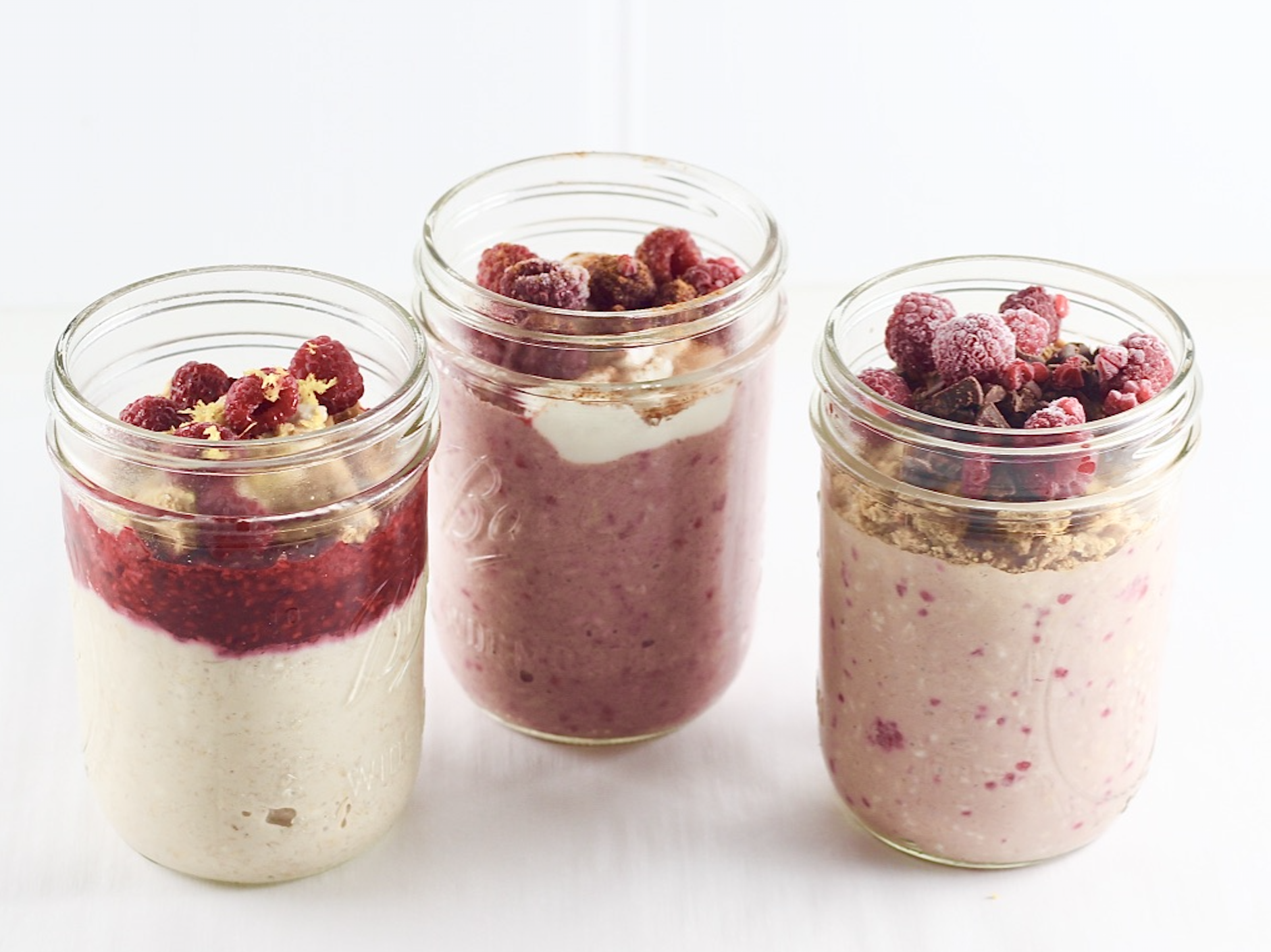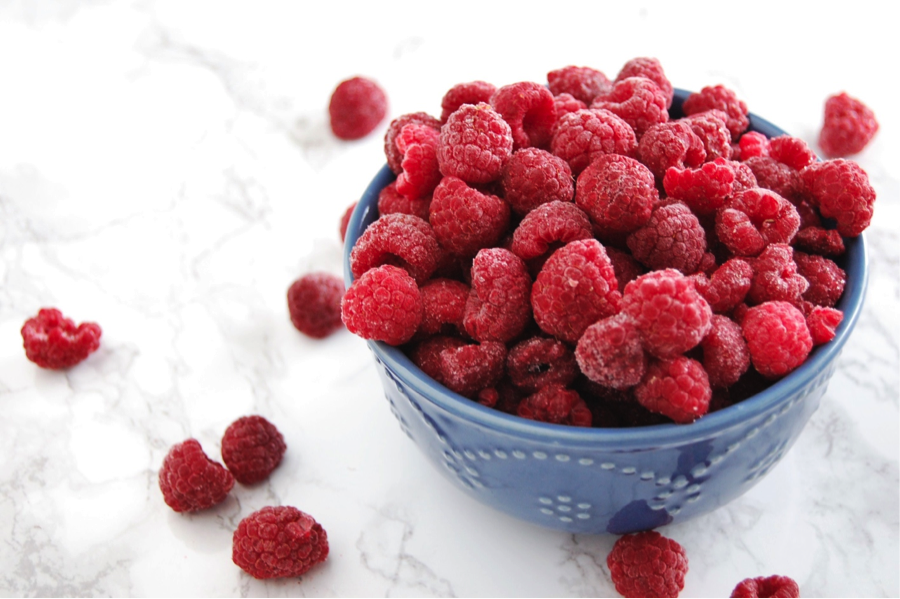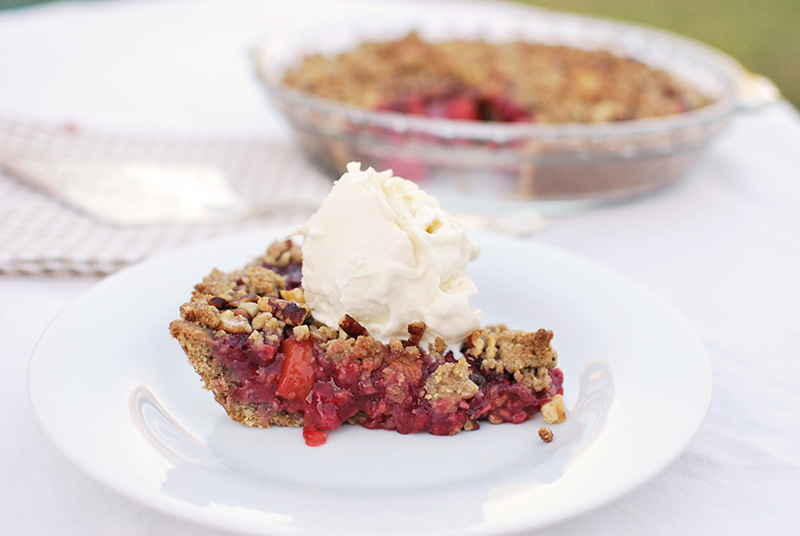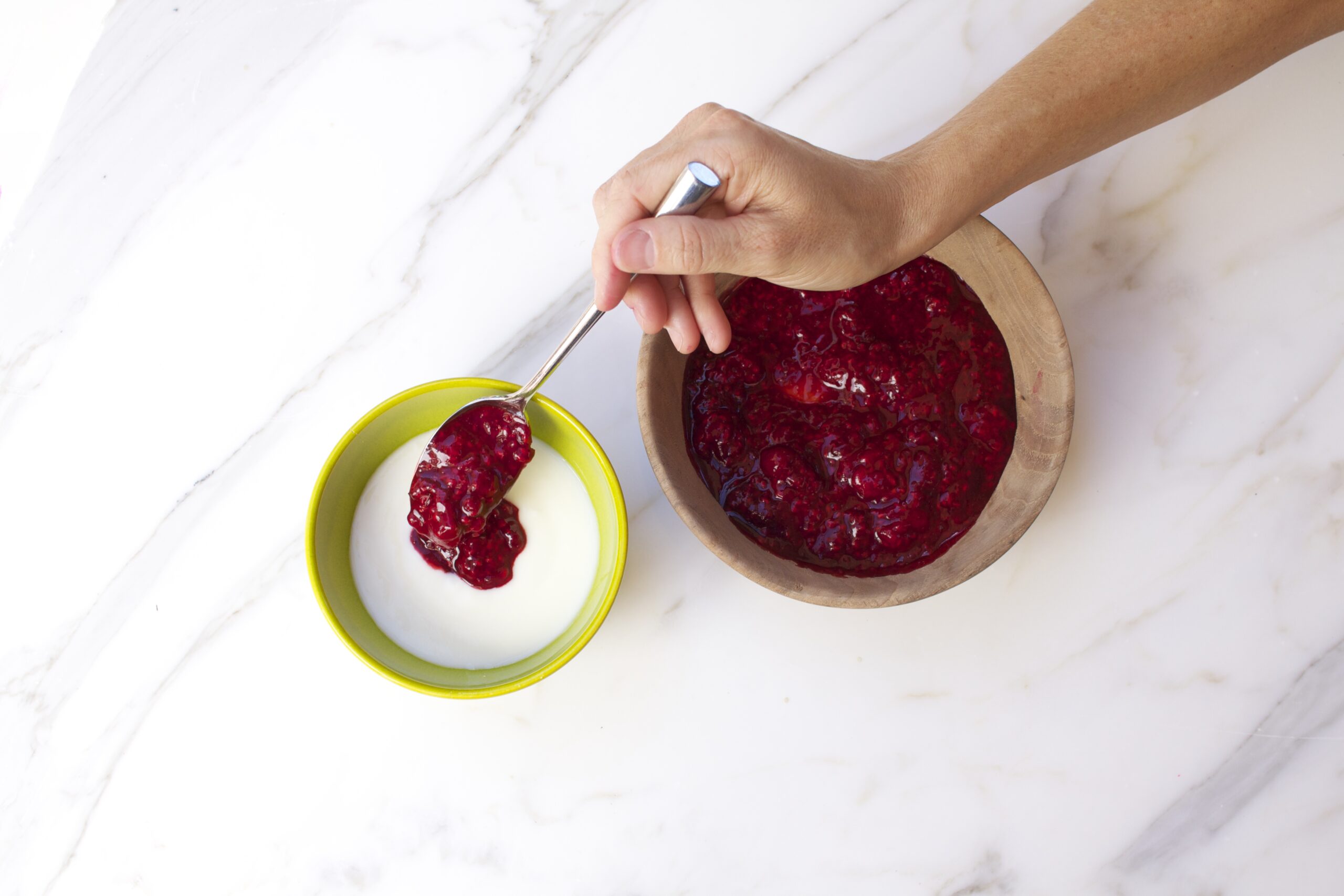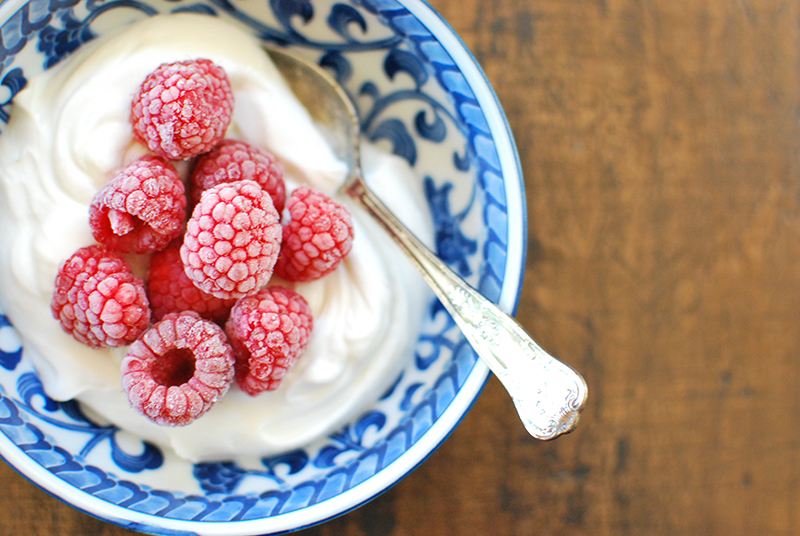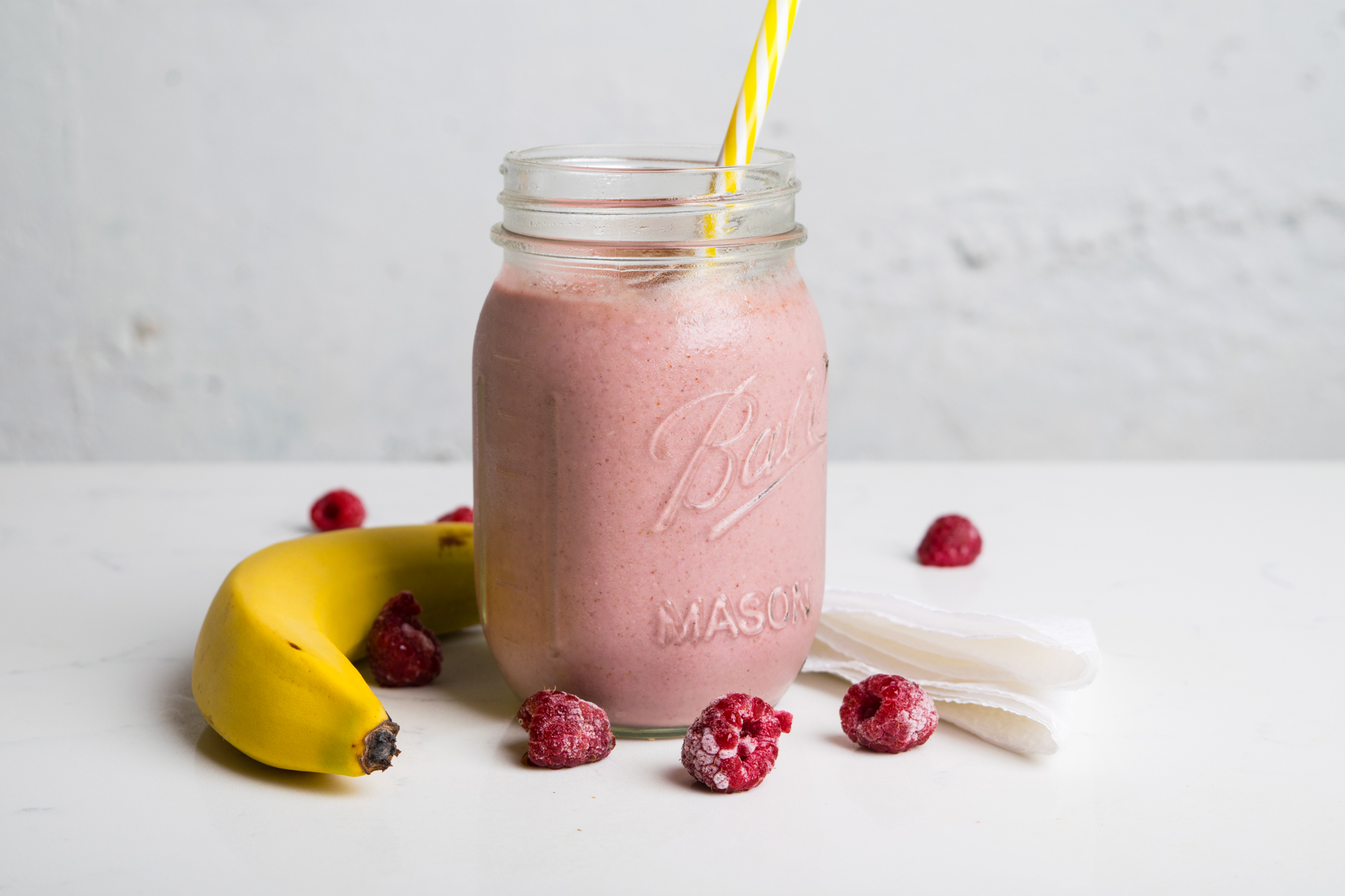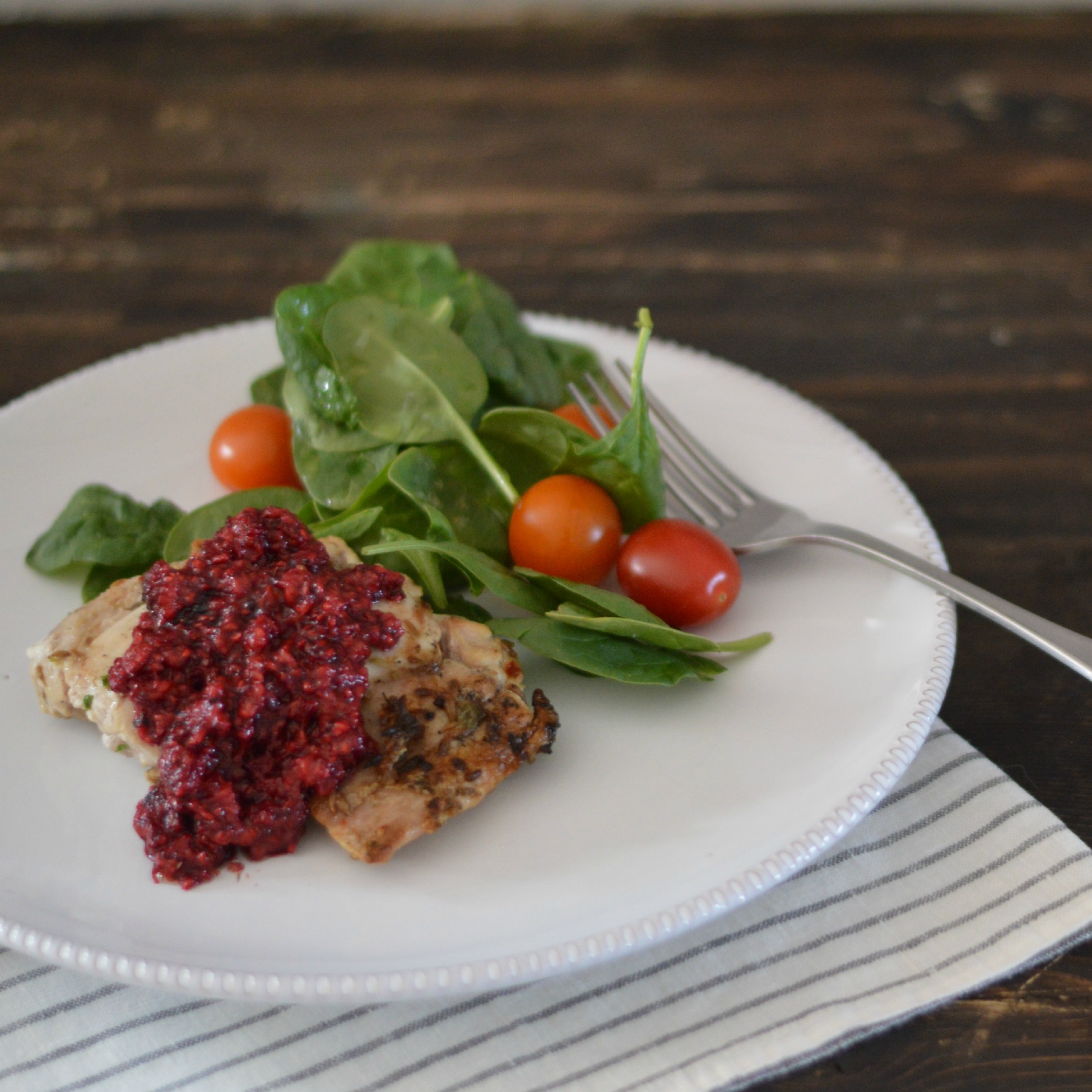
Nutrition
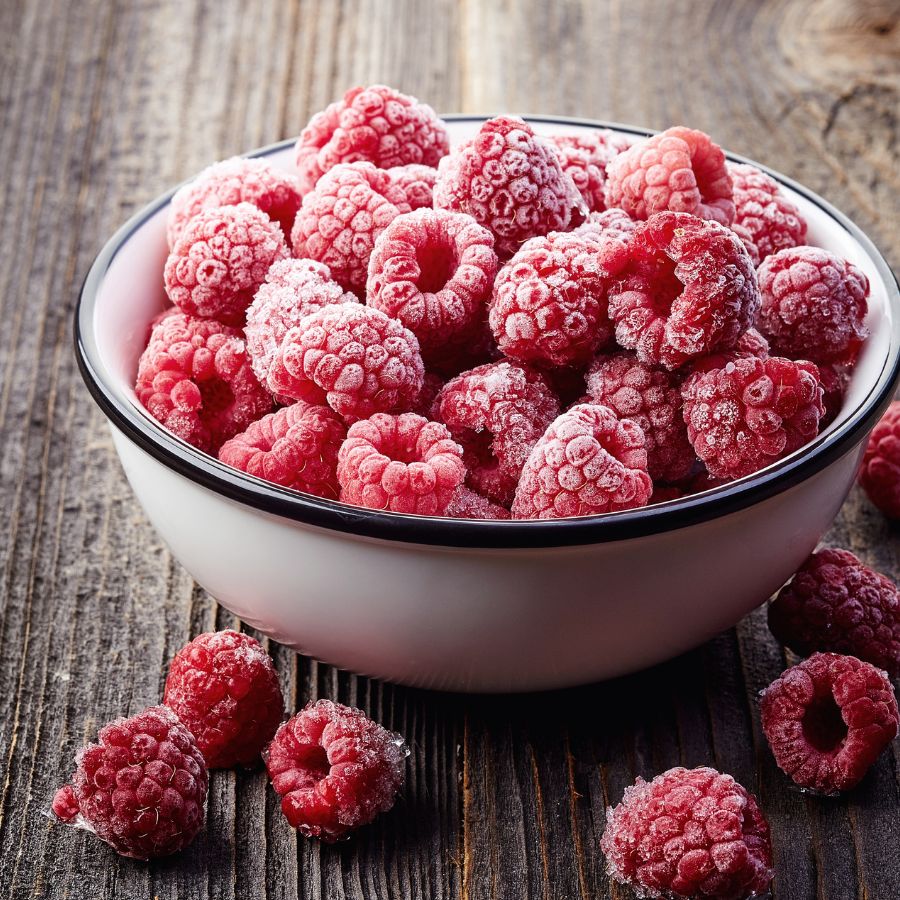
Bursting with a sweet-tart flavor and vibrant red color, red raspberries are among the most widely enjoyed berries in the United States. They also pack a nutritional punch, delivering nutrients and health benefits naturally.
Health Benefits of Frozen Raspberries
A one-cup serving of frozen red raspberries has only 80 calories and provides 28% of the Recommended Dietary Allowance (RDA) of vitamin C, 21% fiber, 10% folate, and all with only 1 gram of fat and no cholesterol.
Key health benefits include:
- A Naturally Low-Fat Food
- A Naturally Cholesterol-Free Food
- A Naturally Low-Sodium Food
- Excellent Source of Dietary Fiber
- Excellent Source of Vitamin C
- Excellent Source of Manganese
- Good Source of Folate
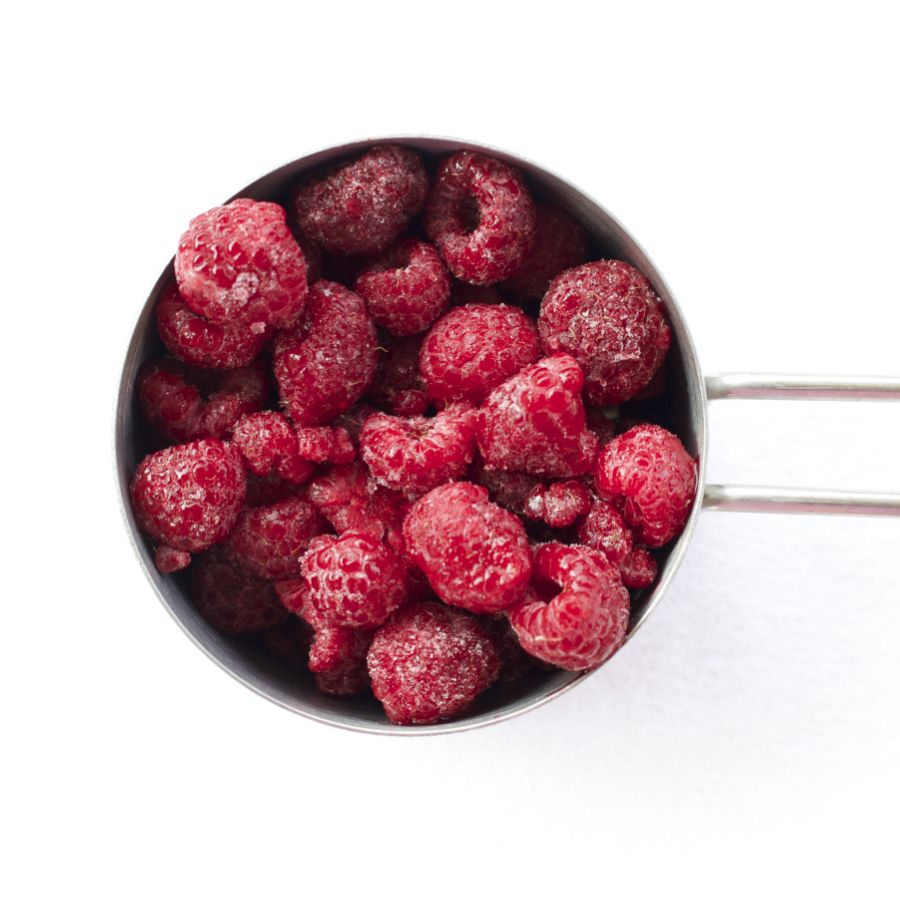
In addition to being high in antioxidants, red raspberries contain several phytonutrients (individual compounds from plants that are in fruits and vegetables). These include the polyphenols anthocyanins, flavan-3-ols, procyanidins, flavonols, ellagitannins, and hydroxycinnamates. [1] [2]
Research suggests that phytonutrients may help slow the aging process and may reduce the risk of certain diseases. A growing body of research is investigating how some phytonutrients may offer protection against some cancers, heart disease, stroke, high blood pressure, cataracts, osteoporosis and other chronic health conditions. [3] Research studies are showing emerging health benefits from nutrients specifically found in red raspberries. [4] [5] [6]
What are Phytochemicals?
Phytochemicals are individual compounds from plants found in fruits and vegetables. Raspberries are among the few plant foods that provide a source of the phytochemicals ellagitannin and anthocyanin in the same package. According to a comprehensive review of the available scientific literature published in the January 2016 issue of Advances in Nutrition, evidence suggests that the action of vitamin C (an antioxidant), fiber, and phytochemicals in red raspberries may be the key to their health-promoting properties, which include:
- Anti-inflammation
- Anti-oxidation
- Metabolic stabilizing activity
These properties shed light on the potential role of red raspberries in helping to reduce the risk of metabolically based chronic diseases, including cardiovascular disease, diabetes mellitus, obesity and Alzheimer’s disease, all of which share critical metabolic, oxidative and inflammatory links. However, more research is needed, especially through human clinical trials.
What are antioxidants?
A one-cup serving of frozen red raspberries is an excellent source of vitamin C, a powerful antioxidant. Antioxidants are substances in food that may prevent or slow oxidative damage. Heart disease, macular degeneration, diabetes, cancer and other diseases may be caused by oxidation. Antioxidants may help immune defense and lower the risk of these diseases. [7]
Healthy Tips
References
[1] Nile SH, Park SW, Edible Berries: Bioactive Compounds and their effects on human health. Nutrition 2014 Feb; 30(2) 134-44
[2] Rodriguez-Mateo A et al. Berry Polyphenols and Cardiovascular health. Jour Food Chem 2013 Oct 7
[3] Academy of Nutrition and Dietetics Complete Food and Nutrition Guide. John Wiley & Sons Inc. 2012 (pp 153-157)
[4] Rodriguez-Mateo A et al. Berry Polyphenols and Cardiovascular health Jag Food Chem 2013 Oct 7
[5] Basu A et al. Berries Emerging Impact on Cardiovascular Health. Nutrition Review. 2010 March 68(8) 168-177
[6] Harini S et al. Prevention of Oxidative DNA Damage by Bioactive Berry Components Nutrition and Cancer 2008 60(S1) 36-42
[7] For more information on antioxidants: http://www.ars.usda.gov/is/ar/archive/mar08/fruit0308.htm
